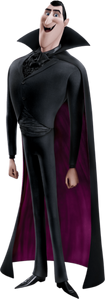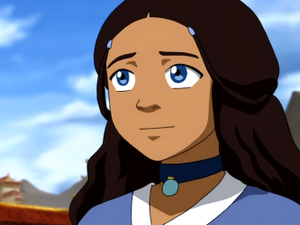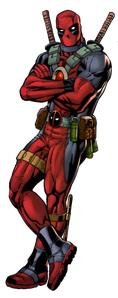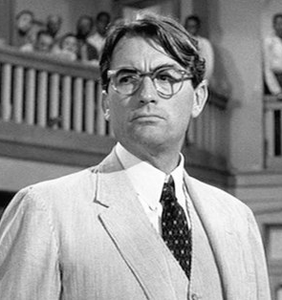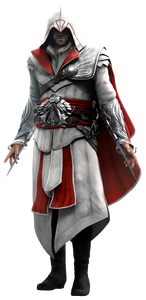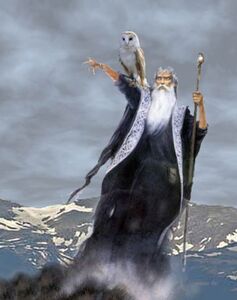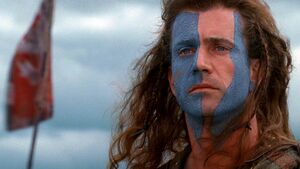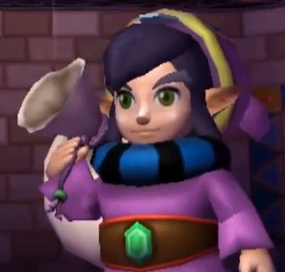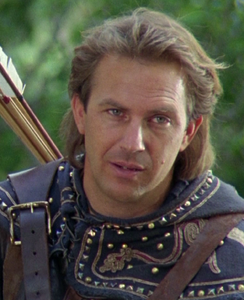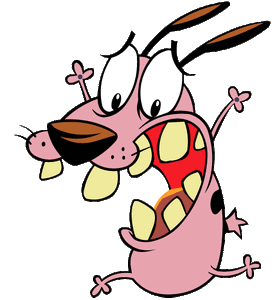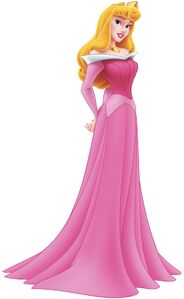| Types of Heroes | |||||||
|---|---|---|---|---|---|---|---|
| A-C | D-F | G-I | J-L | M-O | P-S | T-V | W-Z |
An alphabetical listing of heroes by type.
A[]
- Adaptational Heroism: Heroes who are either not good in their original source material or are more heroic than their original versions.
- Addicts: Heroes who have struggled with addictions in the past, such as drug addictions and alcoholism.
- Adventurers: Heroes who live for adventure and tend to have little to no superhuman abilities but rather rely on cunning, skill or sheer luck.
- Aliens: A being that does not come from the planet Earth.
- Alter-Ego: Heroes who are a second self, which is believed to be distinct from a person's normal or original personality, including other good guys.
- Alternate Reality Heroes: Heroes who live in an alternate reality, dimension, universe, or timeline.
- Amazons: Heroines who are strong, stand up for themselves, are seductive (though some can be masculine) and even confront dangers, showing incredible courage. Basically, the exact opposite of a damsel in distress.
- Amnesiac: Heroes who have suffered memory loss.
- Angels: Heroes that are angels or angelic-like.
- Animals: A hero who is an animal, anthropomorphic or otherwise. (Note: animal heroes are not creatures.)
- Animal Kindness: Heroes who are kind and friendly to animals.
- Antagonists: The heroes who are the antagonists in a story, as in, they are the opposing force to main characters.
- Anthropomorphic: Non-human characters, generally animals that act as if they were human.
- Anti-Heroes: Heroes who have contradictory personality.
- Anti-Nihilists: Heroes who accept that the world is horrible, but they still see the good in it.
- Apprentice of Villain: Heroes who served as an apprentice to a villain at any point of their lives. They may have been forced to be an apprentice to a villain under some certain circumstances, not aware that their mentors are villains or simply lost their way.
- Archenemy: A hero who is the main enemy of the main antagonist.
- Aristocrats: Heroes and heroines that are members of nobility and part of royalty.
- Arrogant: Heroes who are cocky and self-centered and think they know better than other people, but mostly not very much.
- Arthurian: Heroes who are from the age of King Arthur.
- Artificial Intelligence: Heroes who are not always in robotic forms, but are still sentient technology-based entities, like many computer programs that became too powerful.
- Assassins: Heroes that commit the act of assassination, which is a pre-meditated killing of another person that is usually done in either a discreet or particularly audacious manner (such as killing them in front of a crowd for example).
B[]
- Benefactors: Characters who lend support, even financial support for a cause.
- Benevolent Rulers: Heroes who care about their loyal subjects and treat them fairly.
- Berserkers: Heroes who use their unrelenting rage to increase their power.
- Betrayed: Heroes who have been betrayed by their former friends, allies, relatives and/or lovers; who are usually turned out to be villainous.
- Big Good: A character who is the main protagonist of the story/stories in which he/she/they appear(s).
- Bigger Good: A character who is a greater paragon than the main character or characters, who usually qualify as simply the "Big Good".
- Bio-Engineered: Heroes who have either been created or enhanced through biological science.
- Bond Creators: Heroes who are willing to form bonds with other people.
- Bond Protectors: Heroes who are trying to protect the bonds between comrades, friends, and loved ones from being destroyed.
- Brutes: Heroes who are capable of beyond normal strength, to point that can be unlimited.
- Businessmen: Heroes who excel in the workplace, rather than on the battlefield.
C[]
- Casanova: A hero who likes pretty girls and beautiful women.
- Charismatic: Heroes who have good socializing skills, as they use natural charm, empathy or diplomacy to their advantage.
- Chaste: A male or female hero who is either partially or completely oblivious to the appeal of women or men.
- Chaotic Good: A hero who favors following their own rules and creates a natural society for the better.
- Chaotic Neutral: A hero who does not actively seek to build society and order, but do not follow regular ethical values either.
- Clones: Heroes who are created from already existing beings.
- Comedy Heroes: Heroes who come from a comedic work, typically committing funny deeds or are otherwise played for laughs. Generally not a serious threat to the villain.
- Comic Relief: Comedic characters and/or sidekicks who always are the center of attention, and is always trying help the hero by cheering up with some comedy.
- Contradictory: Heroes that are supposed to represent innocence and friendship with the use of common themes, such as angels, fairies, puppets, clowns, toys, elves, etc.
- Control Freaks: Heroes who tend to be dominating towards others probably because they think their protecting them or teaching them to do the right thing.
- Controversial: Heroes who are controversial by actions or appearances, or simply appear in media that is controversial.
- Cosmic Entity: Heroes who have near God-Like power that uses it to protect the universe.
- Cosmic Protection: Heroes who protect the galaxy or a multiverse from threats.
- Counterpart: Heroes who serve as the opposite of the other hero, and sometimes the heroic counterpart of a villain.
- Counter-Terrorists: Heroes that are members of a specialized team of military personnel who fight terrorism head-on or in the shadows.
- Cowards: Heroes who will run from the problems instead of facing them. They are not very brave, but they still save the day.
- Creations: A hero who is an artificial creation.
- Creators: A hero who creates others beings for good.
- Criminals: Heroes who may sometimes commit crimes such as murder, theft, terrorism, vandalism, etc., but that still help save the day.
- Crossover Heroes: Heroes that are seen through dimensions, video games, shows, time eras, etc.
- Cure-Bringers: Heroes who bring medicine to cure illness or disease.
- Cursed: Heroes who have fallen victim to a curse.
Gallery[]
Dracula (Hotel Transylvania) is an example of Adaptational Heroism.
Homer Simpson is an Addict.
Indiana Jones is a classic example of an Adventurer.
E.T. is an Alien.
Ladybug is the Alter-Ego of her civilian being Marinette Dupain-Cheng.
Blaze the Cat is a good example of an Alternate Reality Heroine.
Katara is an Amazon.
Dory is a good example of an Amnesiac Hero.
The Goseigers are Angels.
Lassie is an Animal.
Fluttershy is an excellent example of Animal Kindness.
L Lawliet is a notable example of an Antagonist.
Falco Lombardi is an Anthropomorphic hero.
Deadpool is a classic Anti-Hero.
Tippi is a good example of an Anti-Nihilist.
Galen Marek is the Apprentice of a Villain.
Ken Masters is an Arrogant hero.
J.A.R.V.I.S. is an Artificial Intelligence.
Atticus Finch is the Archenemy of Bob Ewell.
Ebenezer Scrooge is an Aristocrat.
Ezio Auditore da Firenze is a good example of an Assassin.
Merlin is a famous Arthurian hero.
Alice Zuberg is a Benefactor.
Liu Bei is the archetypical Benevolent Ruler.
The Hulk is a Berserker.
Mufasa is the prime example of a Betrayed hero.
Optimus Prime is the Big Good of the Transformers franchise.
Homura Akemi is the Bigger Good of Puella Magi Madoka Magica.
Stitch is the best example of a Bio-Engineered hero.
Gentaro Kisaragi/Kamen Rider Fourze is an excellent example of a Bond Creator.
Hinata Hyūga is a Bond Protector.
Shizuo Heiwajima is a perfect example of a Brute.
Byakuya Togami is a good example of a Businessman.
Brock is a Casanova.
Satsuki Kiryūin is a Charismatic heroine.
Firestar is the Chaste hero.
William Wallace is a Chaotic Good.
Captain Jack Sparrow is a Chaotic Neutral.
Mewtwo is a Clone of Mew.
Cookie Monster is a Contradictory character.
Buster Moon is a great example of a Control Freak.
Eric Cartman is a good example of a Controversial hero.
Kirby is a Cosmic Entity.
Sora is a source of Cosmic Protection.
Ravio is a Counterpart of Link.
Nicholas Raine is a Counter-Terrorist.
The Powerpuff Girls are Creations.
Coco Bandicoot is a Heroic Creator.
Robin Hood is a Criminal.
Courage the Cowardly Dog is a typical Coward.
Master Hand is a famous example of a Crossover Hero.
Balto is a perfect example of a Cure-Bringer.
Princess Aurora is a Cursed heroine.

